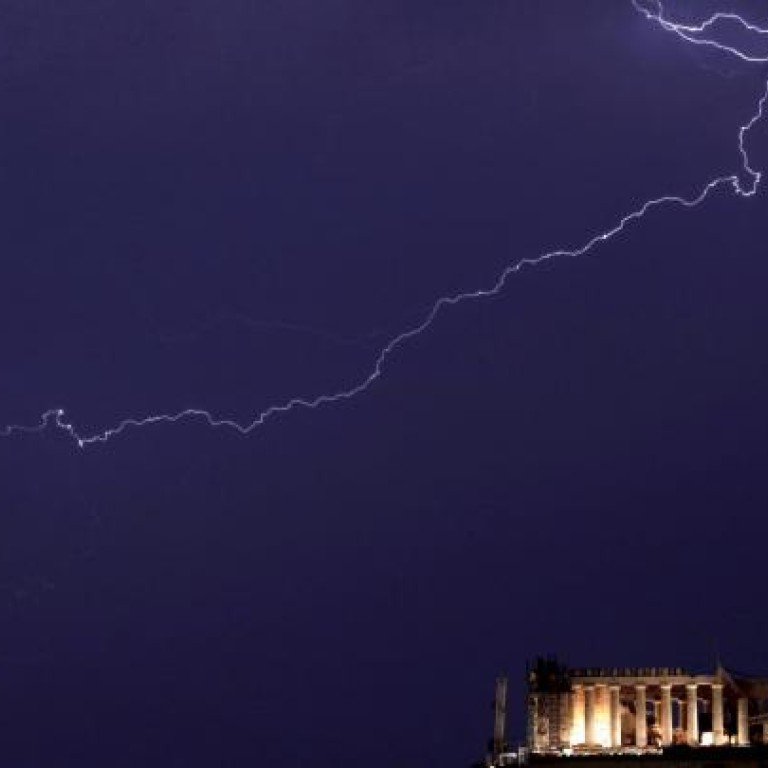
Europe leaders confident on euro survival
News has been good over recent times for the European currency, but there remains doubt about the survival of Greece as part of the bloc
European leaders, basking in praise for their rediscovered crisis-fighting skills and the award of a Nobel Peace Prize, meet this week as Greece seeks to justify renewed aid and Spain holds out on tapping a bailout.

With German finance minister Wolfgang Schaeuble yesterday ruling out a Greek exit, the 17-nation euro area faces the challenge of harnessing positive sentiment by resolving differences on aid for Greece and Spain before investors pounce again. Also contentious is how to knit euro nations more closely together as differences remain over the timing and depth of a banking union.
"The summit will highlight how much remains to be done," said Alex White, an economist at JP Morgan Chase in London. "Our concern is that the removal of acute financial market stimuli may reduce the political incentive to deliver."
That respite is the result of the European Central Bank's (ECB) bond-buying pledge last month and the enactment of a €500 billion (HK$5.01 trillion) permanent rescue fund, the European Stability Mechanism.
Nerves have returned to markets as Spain's 10-year bonds advanced for a second week after Standard & Poor's cut the nation's debt rating to one level above non-investment grade.
The yield on Spanish 10-year bonds dropped 20 basis points to 5.625 per cent in three days up to October 12. The euro climbed 0.5 per cent in that period to trade at US$1.2951.
In a weekend video address, German Chancellor Dr Angela Merkel spoke of the euro as "more than a currency" and said the monetary union's leaders had finally established the mechanisms to hold the members together for the long term.
"We're now being tested by the markets on whether we can hold it together," Merkel said. "For this, over the past two years we've established the instruments necessary to protect the euro area on a sustained basis."
United States Treasury Secretary Timothy Geithner was among those attending the International Monetary Fund's annual meeting in Tokyo to laud the new policies, saying Europe had now found a "more promising strategy". The currency bloc was nevertheless pushed not to repeat its past error of resting on its laurels. In a list of global policies that the IMF deemed vital for economic health, policymakers were told both the bailout fund and the ECB's outright monetary transactions "need to be deployed".
If the demand was aimed at Spain, it went unheeded as the country resists following its €100 billion bank bailout programme with a broader one.
Spanish economy minister Luis de Guindos said that he felt "extremely comfortable" with his country's ability to fund itself for the rest of this year.
"Although Spain might still hesitate to ask for help, it cannot delay much longer," said Gizem Kara, an economist at BNP Paribas in London.
In Athens, the government and its international inspectors are trying to strike a deal on economic policies before the Brussels summit, at which prime minister Antonis Samaras will request more time to implement the overhaul. An agreement is a condition to receive a €31 billion aid instalment needed to fund banks and pay debts.
Greece's key creditors were divided in Tokyo. Following a study showing fiscal cuts may have bigger effects on economies than previously estimated, IMF managing director Christine Lagarde endorsed the idea that Greece be given two more years to meet its goals and raised the idea of more restructuring before further bailout efforts proceeded.
She was criticised by Schaeuble, who said governments could not accept losses on Greek debt holdings and that "if you're doing a long run, you mustn't make it even longer by briefly running in the opposite direction".
Still, the German finance chief buttressed efforts to keep Greece in the currency union by excluding a sovereign default.
"It will not happen that there will be a 'staatsbankrott' in Greece," Schaeuble said in English at a forum in Singapore yesterday, using the German word for state insolvency. He said he saw no "sense to speculate on Greece leaving the euro".
Swedish finance minister Anders Borg had done just that, saying that Greece could still quit the currency in the next six months, dampening the post-Nobel glow and any dividend from last week's trip by Merkel to Athens.
"It's most probable that they will leave," Borg said. "We shouldn't rule out this happening in the next half-year."

